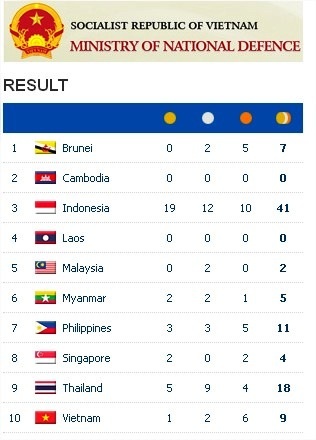President Jokowi Sets Up Task Force to Fight Illegal Fishing
By taking into account that facts that violations and crimes in the fishery sector, particularly illegal fishing, are already at a very alarming level, President Joko ‘Jokowi’ Widodo on 19 October 2015 signed a presidential regulation number 115 of 2015 on Task Force on Illegal Fishing.
The task force, which is directly responsible to the President, is tasked to develop and implement the operations of law enforcement to fight illegal fishing by optimizing personnel and operational equipment owned by the Ministry of Maritime and Fisheries Affairs, the Indonesian Air Force, the Indonesian National Police, the Attorney General Office, the Maritime Security Board (Bakamla), the Upstream Oil and Gas Regulatory Special Task Force (SKK Migas), state-owned gas and oil company PT Pertamina, and related institutions.
Article 3 paragraph (2) of the task force also says that tasks of the task force as intended by the presidential regulation also includes fighting unreported fishing,
Meanwhile, the task force is authorized to:
a. Determine the targets of law enforcement to fight illegal fishing;
b. Coordinating in data and information collection needed as efforts to enforce the law with related institutions, and not limited to the Ministry of Maritime Affairs and Fisheries, Ministry of Finance, Ministry of Foreign Affairs, Ministry of Transportation, Ministry of Transportation, the Indonesian Navy, the Indonesian National Police, the Financial Transaction Reports and Analysis Centre (PPATK), and the National Intelligence Agency (BIN).
c. Setting up and instructing elements of the task force to enforce the law to fight illegal fishing in regions determined by the task force; and
d. Giving command and doing control as intended by the presidential regulation yang include ships, planes, and other technologies from the Indonesian Air Force, the National Police, the Ministry of Maritime Affairs and Fisheries, as well as Bakamla which are are under the task force.
Under this presidential regulation, the task force comprises:
a. Minister of Maritime and Fishery Affairs as the commander of the task force;
b. Deputy Chief of Staff of the Indonesian Navy as Chief Executive
c. Head of Bakamla as Deputy Chief Executive
d. Head of Security Maintenance Agency of the Indonesian National Police as the Deputy Chief Executive; and
e. Deputy Attorney General for General Criminal Affairs of the Indonesian Attorney General Office as Deputy Chief Executive
The presidential regulation also states that the task force shall set up a joint team led by an on-scene commander in the sea and implement the operation of law enforcement to fight illegal fishing based on the intelligence data.
“The joint team as intended by the presidential regulation is directly responsible to the commander of the task force,” according to Article 4 paragraph (3) of the presidential regulation.
In the meantime, to support the tasks of the task force, according to this presidential regulation, a task force secretariat may be established and it is tasked to carry out administrative and financial affairs of the task force. The secretariat is led by a secretariat head.
Organization of the task force secretariat as intended by Article (4) is decided by the commander of the task force.
In addition, commander of the task force may appoint special staffs and an expert team tasked to assist the tasks of the task force.
Article 5 of the presidential regulation states that in carrying out his/her tasks, commander of the task force shall receive directions from the Coordinating Minister of Political, Legal and Security Affairs, Coordinating Minister for the Economy, Coordinating Ministry for Human Development and Culture, Coordinating Minister for Maritime Affairs, Commander of the Indonesian National Defense Forces (TNI), Chief of the Indonesian National Police, and the Attorney General.
“The task force shall report every development of its operations to the President every 3 (three) months or anytime if necessary,” according to Article 7.
Meanwhile, the task force is evaluated by Coordinating Minister for Political, Legal and Security Affairs, Coordinating Minister for the Economy, Coordinating Minister for Human Development and Culture, Coordinating Minister for Maritime Affair, Commander of the Indonesian National Defense Forces (TNI), Chief of the Indonesian National Police, and the Attorney General every 6 (six) months.
As for the funding of the task force, it is taken from the State Budget and/or or other legitimate and unbinding sources in accordance with the prevailing laws and regulations.
“This presidential regulation begins to take effect on the date it is promulgated,” according to article 10 of the presidential regulation, which was promulgated by the Minister of Justice and Human Rights Yasonna H. Laoly on 20 October 2015.
President Jokowi Sets Up Task Force to Fight Illegal Fishing | Sekretariat Kabinet Republik Indonesia

















